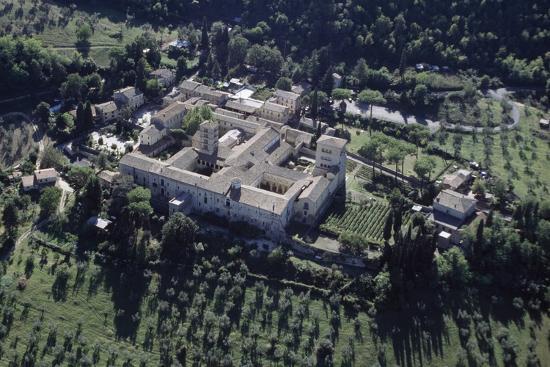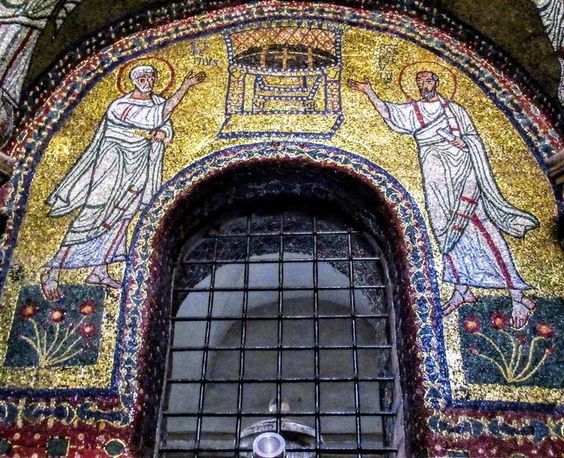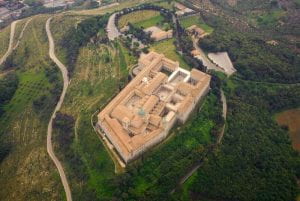03A: The Church and Rome: Monasticism and the Papacy
Monasticism
- Major institution in general, in and around Rome in particular
- “Reform” movements of 11th c especially based in monastic experience
Origins to St Benedict (ca. 480-547)
Models
- Essenes
- Jesus’s apostles
Rise of ascetics: especially in North Africa, East Mediterranean
- Anthony of Egypt (251-356): organization of eremitic monks
- Rome ca 340: Athanasius of Alexandria and 2 other disciples of Anthony
- Other early centers: Roman Gaul, Ireland
Cenobitic (community) monasticism: Benedict ca. 480-547
- Monte Cassino
- Rule
- a community dedicated to the Service of God.
- Main work (opus dei): communal prayers (Offices)
- Abbot
donations of land by pious
Rome: monasteries both in city and countryside; canons
Ex: Farfa, 6th c. 
Regulation of monasteries
- Internal: abbot (and monks)
- External: by region Roman law (diocese); non-Roman (independent or under lord)
10th c + efforts to being stronger, more consistent external organization
Papacy
Byzantines and church hierarchy
Associations with Peter: seen by 3rd c
Triclinium Leoninum, detail

Santa Prassede, Zeno Chapel, Saints Peter and Paul

Constantine: traditional Roman role: ruler as defender of religion
500 (ca) term exclusive to Bishop of Rome
Justinian: recognized 5 top church leaders: Rome, Constantinople, Alexandria, Antioch, Jerusalem; Rome the highest Latin authority
Development of political powers
Northern Europe: often Christianized under direction of ruler
- Exception: England/Gregory the Great
- Efforts at transition: 8th c with Boniface (672-754)
Charlemagne
Pope as leader of Latin Christians versus Pope as ruler of Rome+
After the Carolingians: new disorders and migrations of peoples
Efforts to rebuild and return to order
Conflicts over those reform efforts: the papacy and Rome

